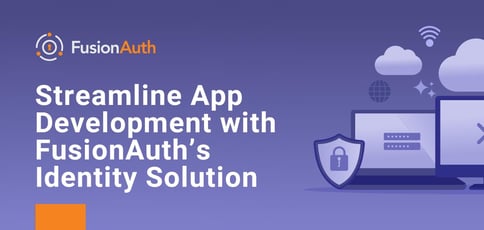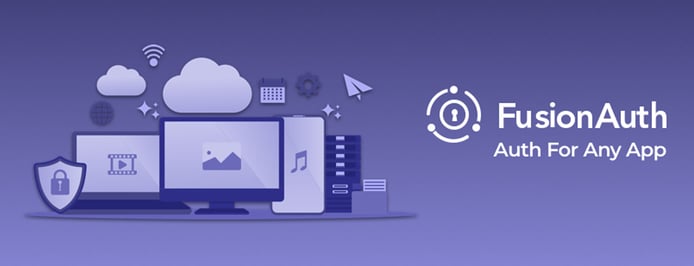
TL; DR: FusionAuth is a secure and comprehensive identity and access management tool designed for developers by developers. The solution, which can be deployed on-prem or through cloud-based servers, plugs seamlessly into applications and can be fully customized. By pairing high-level customer support with low price points, FusionAuth is putting streamlined development within reach for a growing number of programmers.
Businesses have begun to acknowledge that the physical health of developers is an asset. As a result, many workstations now come equipped with furniture and devices designed to encourage natural posture, reduce exertion, and function within optimal reach zones.
Such tools boost productivity by helping eliminate employee absences caused by repetitive strain injuries. But employers often overlook the mental strain developers can experience from repetitive and complex coding tasks.
Fortunately, the team at FusionAuth is working to reduce such pain points in the massively complex customer identity access management (CIAM) space.

FusionAuth’s identity and access management tool can be deployed on-prem or through cloud servers.
“We call it developer ergonomics,” said David Polstra, Marketing Director at FusionAuth. “The focus is on making developers’ lives easier with a flexible, API-driven solution that takes just minutes to install.”
FusionAuth saves teams time and resources by offloading authentication, authorization, and user management from the core of business-facing applications to a central repository. The platform automatically implements complex standards like OAuth, OpenID Connect, and SAML and helps users meet various compliance requirements.
Built specifically for developers, the platform also features flexible architecture, powerful security, and intuitive management and reporting. Best yet, FusionAuth plugs seamlessly into applications, is fully customizable, and can be deployed in the cloud or using servers on-premises.
Without the need to build, test, and maintain a complicated identity management solution, developers can shift their focus to pure innovation.
The Flexibility and Control Developers Need
FusionAuth’s parent company, Inversoft, was founded in 2007 by CEO Brian Pontarelli, who used his spare time to grow the company into a profitable business without venture capital.
“Inversoft’s first product was CleanSpeak, a profanity filter and moderation platform,” David said. “The product needed an auth and user management system. After the team built one, they realized that no one else should have to go through the same pain”
The company initially sold the solution as part of the CleanSpeak platform before breaking it out into a standalone product called Passport. The tool was rebranded as FusionAuth in September 2018.
FusionAuth, based in Colorado, has attracted a growing customer base since its launch. The company’s location contributes to this growth, with the Centennial State’s robust tech scene serving as the perfect backdrop for a product that solves complex development challenges.
Increased public awareness of the importance of data security has also led developers and business owners to embrace the solution. To date, FusionAuth has been downloaded millions of times by users across six continents. No matter what platform or framework they’re working on, developers from companies of all sizes can use FusionAuth to serve their users while protecting personal data.
FusionAuth is currently available in several flavors, including a self-hosting option and deployments in private cloud servers via FusionAuth Cloud. FusionAuth also comes in Developer, Premium, and Enterprise editions with varying access to support and premium features.
Amplified Support and Accessible Price Points
The identity and access management industry has faced significant change recently with Okta’s acquisition of Auth0. These two companies represent the majority of FusionAuth’s competition. Still, FusionAuth commended them in a recent blog post.
“Congrats to Auth0, their employees, and investors on their acquisition by Okta!” the post reads. “This validates that CIAM is a crucial part of any application and that outsourcing it to a provider like Auth0 just makes sense. The identity community owes a lot to Auth0, and that includes FusionAuth.”
As Auth0 and Okta work out the details of the merger, FusionAuth will continue touting the value of offloading identity, authorization, and authentication management to companies like itself. To help customers transferring the Auth0 to FusionAuth, the company offers an overview of the migration process.

FusionAuth is known for its customization options and top customer support.
“We’re seeing organic traffic growth, and we’ve also been advertising to spread awareness about FusionAuth,” David said. “We are very similar to Auth0 in terms of features, but customers tell us our price point is lower. The product is accessible to basically anyone who needs a login page for their app or website.”
FusionAuth also shines when it comes to support, offering 24-hour response times for Premium customers and two-hour response times for the Enterprise edition.
“Every single customer that I’ve talked to mentions how easy it is to work with us,” David said. “It’s almost like we become a part of their development team when they implement FusionAuth. On top of all that, they love our price point. Since we’re developer-focused, we don’t want customers overpaying for essential security features.”
Advanced and Customizable Multifactor Authentication
FusionAuth comes with a broad catalog of built-in features, from robust security and compliance to intuitive management and reporting.
One popular feature is single sign-on (SSO), an authentication strategy that allows users to log in to related software systems using just one ID and password. After configuring an application in FusionAuth, users can dictate how long the SSO sessions last, assigning different settings for each software system if desired.
Users have the choice to host FusionAuth in the cloud or even on-premises using their own servers. On the frontend, FusionAuth Themes empowers users to customize the login, presenting users with a familiar, fully branded experience. Users can localize the login page via support for multiple languages, and FusionAuth integrates with CleanSpeak to filter out inappropriate usernames.
In addition to these features, FusionAuth introduced advanced multifactor authentication (MFA), which allows users to choose what MFA method works for them as well as set up multiple methods without developers writing any custom code.
“Previously, we only supported Twilio Authenticator and Google Authenticator,” David said. “We will be supporting customization. So instead of getting the general Twilio message, you’ll be able to customize that by offering email multifactor and over-the-phone multifactor, among other options. We’ve been working on this for quite some time.”
Bringing Kubernetes Support In-House
As mentioned, users have the choice to run FusionAuth anywhere. This includes Docker, a tool designed for building containerized applications.
While the FusionAuth community has traditionally supported Kubernetes, users have expressed interest in commercial support for running FusionAuth in Kubernetes — and FusionAuth is following suit.
“We’re working to bring Kubernetes support in-house and revamping all of our documentation to make sure that it follows best practices,” David said. “It’s exciting for me because my background is in the Kubernetes space, and we’re seeing a lot of traction with Docker and Kubernetes.”
This and future efforts in developer ergonomics will further FusionAuth’s mission to reduce pain points in the complex customer identity access management space.
HostingAdvice.com is a free online resource that offers valuable content and comparison services to users. To keep this resource 100% free, we receive compensation from many of the offers listed on the site. Along with key review factors, this compensation may impact how and where products appear across the site (including, for example, the order in which they appear). HostingAdvice.com does not include the entire universe of available offers. Editorial opinions expressed on the site are strictly our own and are not provided, endorsed, or approved by advertisers.
Our site is committed to publishing independent, accurate content guided by strict editorial guidelines. Before articles and reviews are published on our site, they undergo a thorough review process performed by a team of independent editors and subject-matter experts to ensure the content’s accuracy, timeliness, and impartiality. Our editorial team is separate and independent of our site’s advertisers, and the opinions they express on our site are their own. To read more about our team members and their editorial backgrounds, please visit our site’s About page.

